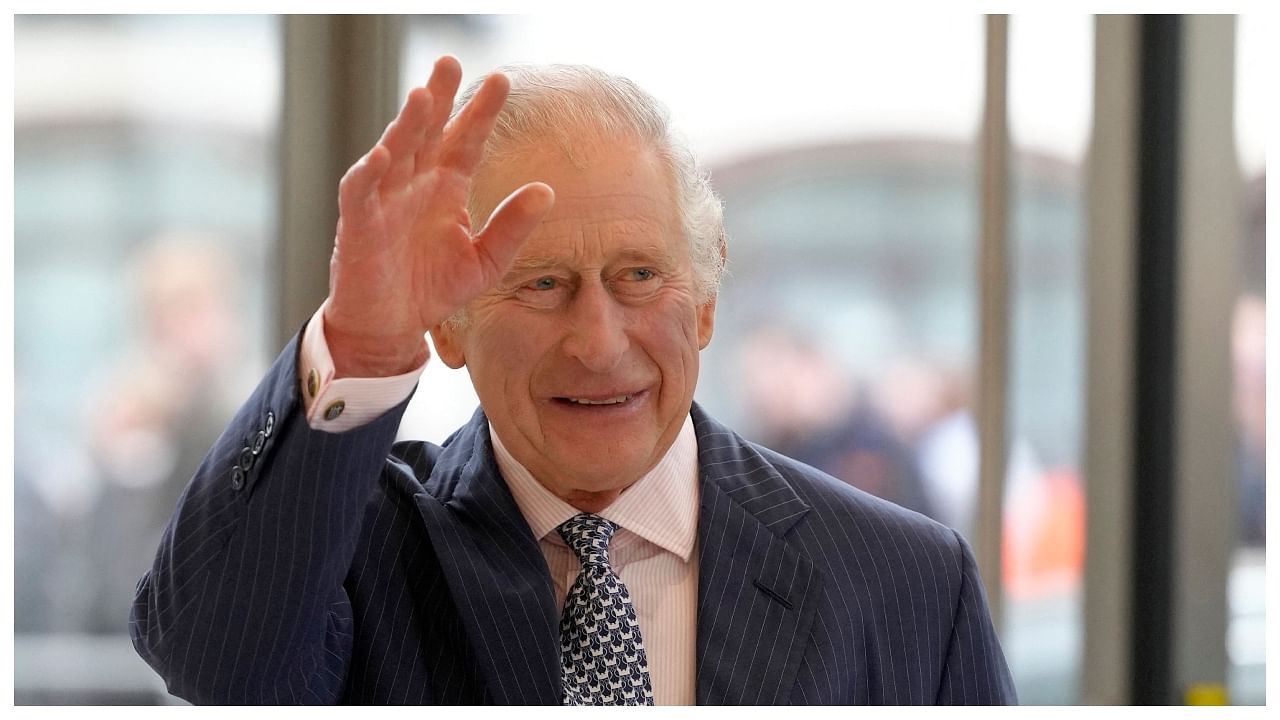
In a lifetime spent as heir to his mother Queen Elizabeth II, King Charles III cultivated a range of interests and passions, from architecture to the environment.
But at an age when most people have retired, he now finds himself having to ensure a successful, if tricky, transition before the crown passes to his eldest son and heir, Prince William.
Since his mother's death last September, Charles, 74, has thrown himself into the largely ceremonial role as a politically neutral, uncontroversial head of state, despite his record of often outspoken views.
He has been a visible presence in all four nations of the United Kingdom, heading a push for unity after a turbulent recent past marked by Brexit and calls for Scottish independence.
Unlike his mother, who cultivated an air of mystery and distance, Charles has shown himself to be much more accessible, at ease smiling and shaking hands with crowds at public events.
That chimes with his desire for a more modern, open monarchy that keeps the ancient institution relevant, particularly to younger Britons, and as republican sentiment mounts in the 14 other countries outside the UK where he is also king.
Charles also heads the 56-nation Commonwealth grouping, which comprises about a quarter of the world's population.
He has called for unity there, too, to help tackle "the most pressing issues of our time", including climate change.
Recent royal visits have seen him drop in on a group of refugees from the Darfur region of Sudan, and at a charity for the elderly.
He has hosted European Commission President Ursula von der Leyen, and celebrated the second anniversary of his wife Queen Consort Camilla's "The Reading Room" book club on Instagram.
Charles lived for 70 years in his mother's shadow, with his only role as heir to support her "in her role as a focal point for national pride, unity and allegiance".
But despite throwing himself into his new job, his youngest son Harry has stolen some of the limelight, with the publication of his autobiography Spare and a Netflix series.
Harry's score-settling has grabbed headlines just as Charles has been seeking to stamp his authority.
Not everyone has welcomed him with open arms, though, and some royal walkabouts have seen anti-monarchy protests, including egg-throwing.
On the popularity front, Charles (63 perc ent) lags behind his mother (81 percent) and William (72 per cent), according to pollsters YouGov.
But royal commentator Richard Fitzwilliams said: "His polling ratings are not too bad at all.
"If someone ascends to the throne in his seventies, you will get respectable ratings, and he has because he is conscientious," he told AFP.
"He's a different personality from his mother," added Peter Ricketts, the UK's former ambassador to Paris.
"The Queen was respected for being the Queen, for having been there so many decades.
"The King, I think, will be respected for that, but also because he is someone who brings personal convictions to the job, and he will find subtle ways in which to communicate the importance of saving the planet for succeeding generations.
"And he has a very special platform from which to do that."
Ricketts described Charles as a "warm, emotional man" while William and Harry have said he is a hardworking father who they often found asleep in his office late at night.
Camilla has described her husband as a man in a hurry but also a doting grandfather who reads his grandchildren Harry Potter books.
"He does all the voices because he's a brilliant mimic," she has said. "It's really sweet. He's extremely good with children. They love it."
With Harry self-exiled in the United States, and Charles's younger brother Prince Andrew sidelined after a sex scandal, the king is building the monarchy around himself and Camilla.
William and his wife Kate are also part of the inner circle, with the king's youngest brother Prince Edward and his wife Sophie.
Preparations for the coronation -- the 1,000-year-old religious official ceremony for his accession -- are well advanced.
Some 2,000 people are expected at Westminster Abbey in London on May 6 -- some 6,000 fewer than for his mother in 1953.
But according to pollsters YouGov, 22 percent of Britons do not intend to watch it, despite plans for giant screens to be erected across the country.
And more than half (58 per cent) say they will not celebrate it in public.